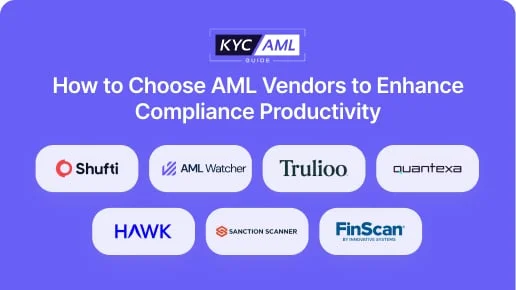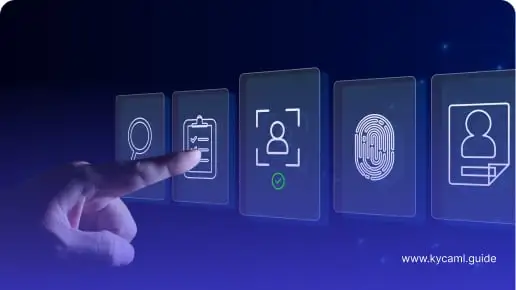What is KYC Blockchain?
Blockchain is a virtual ledger that efficiently records transactions and data. Simply put, blockchain technology refers to integrated data sets. This site uses a database that is impervious to hacking and cyber theft. This method is secure because the data is not controlled by one entity. However, this is divided into multiple compatible data servers. The use of blockchain in international money transfers is a prime example. They are currently developing solutions that use blockchain-based ID verification systems to help speed up the lengthy ID checks that banks need to perform. Other solutions range from electronic medical records to home-buying solutions.
The KYC process is widely used in financial and banking records. However, the current KYC process is more tricky and time-consuming. Once again, customers have to endure the arduous process. The banking industry has revolutionized the efficiency and security of financial transactions thanks to the integration of blockchain technology.
The current KYC verification needs to be fixed urgently using blockchain in KYC. Manual record keeping is error-prone and difficult to set up. However, the blockchain in KYC is a solution that can overcome security issues. The flexibility and reliability of blockchain databases led to their adoption. Besides this, it can help overcome the shortcomings of the traditional KYC process.
Shortcomings of the Current KYC System
The current KYC verification process has several significant hurdles, which have generated interest in blockchain technology as a potential solution. Knowing these shortcomings makes it easier to understand why so many finance professionals are in favor of using blockchain technology for KYC. The main points about the current centralized KYC system are:
a. Lack of Standardization
As every bank and financial institution has different KYC criteria, clients have to go through the procedure more than once. This is expensive as well as time-consuming.
b. Difficulty in Identifying Fraudulent Data
Identity fraud is made easier for criminals by the ease with which traditional identities may be altered. Banks dealing with many customers at the same time often struggle to spend enough time detecting fraud, putting many people’s money at risk.
c. Challenges in Tracking Customers
Centralized databases make it difficult to track customers effectively. Each organization’s isolated data limits the ability to track customer activity across platforms, resulting in incomplete and fragmented information.
d. Delayed Processing Times
Current KYC processes are slow even when digitized. Authorities have to cooperate with servers to verify personal data, which leads to significant delays. These issues lead to higher costs for KYC processes and contribute to the ever-increasing cases of money laundering. This is why there has been a shift towards using blockchain technology for KYC, which promises to address these inefficiencies.
Let’s explore how blockchain can revolutionize KYC verification and help the FinTech sector.
Benefits of Blockchain in KYC
1. Distributed User Data Collection
Currently, data is stored in centralized systems, requiring KYC providers to share customer data with companies that need permission, which is time-consuming and susceptible to security risks. Blockchain technology allows access to data transfers filling spaces, improving security, and giving individuals more control over their affairs.
2. Streamlined Customer Onboarding:
Blockchain in KYC simplifies client onboarding by allowing users to safely keep and effectively exchange their KYC/AML data across numerous businesses. This improves the customer experience by removing the requirement for repeated mailings and verifications.
3. Centralization of Controls and Risks
Centralized systems are prone to human error and fraud. The decentralized nature of blockchain mitigates the risks that data access requires direct authorization and by implementing risk management measures such as AML risk ratings, risk can be mitigated.
4. Governance and Data Quality
Under current systems, each financial institution collects and verifies data independently, resulting in inconsistencies. Blockchain provides a secure single ledger that improves data governance, prevents fraud, and ensures compliance with regulatory requirements.
5. Real-time Updates
The KYC blockchain service enables the sharing of data through a distributed ledger. Financial institutions can easily track the changed KYC transaction details. Having real-time updates keeps organizations aware of potential risks. Additionally, the information helps identify warning signs and prevent money laundering cases.
6. Communication and Transparency
Traditional KYC systems require extensive verification processes. The transparent blockchain allows for real-time monitoring and warnings of fraudulent activities, simplifies transactions, and reduces the need for secondary authentication.
7. Suspicious Activity Reporting
Current KYC processes are slow and costly. Blockchain’s shared ledger enables rapid updates and maintenance across organizations, making it easier to quickly detect and report suspicious activity.
8. Comprehensive Authentication Process
The current system is susceptible to security lapses because it relies on centralized data storage. In online banking settings, blockchain’s cryptographic verification and decentralized architecture boost security, lower fraud, and boost user satisfaction.
Also Read: Self-Sovereign Identity (SSI): A Guide to The Future of Digital Identities
Can Blockchain Development Solutions Solve KYC Challenges?
A promising answer for the issues with traditional KYC systems is provided by blockchain development. Blockchain in KYC solutions reduce the risk of fraud and identity theft by maintaining security and transparency in customer data management through the use of decentralized and immutable blockchain technology. Smart contracts can automate KYC processes, and lower human error. Blockchain ensures privacy and consensus management while facilitating safe data sharing between reliable parties. While challenges such as scalability and regulatory considerations remain, blockchain holds tremendous potential to transform KYC, making it more efficient, secure, and customer-centric, ultimately increasing compliance in the economy and improving customer experience.
Bottom line
The use of blockchain in KYC compliance solutions has the potential to change the way businesses and financial institutions manage due diligence and customer identification. The decentralized and immutable blockchain infrastructure provides unmatched security, efficiency and transparency, all of which are essential for preventing financial crimes and complying with legal requirements. Our expert team at KYC AML Guide is ready to guide you through this new environment. We provide consulting services to help you find the best blockchain-integrated KYC solution.





